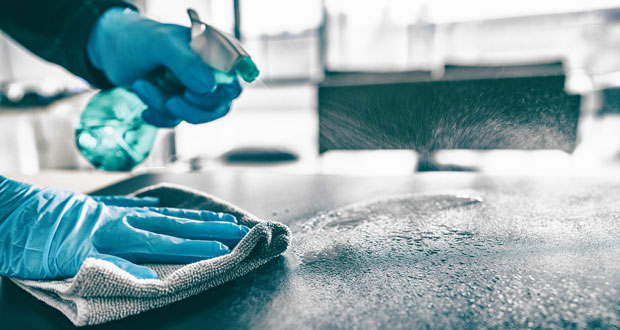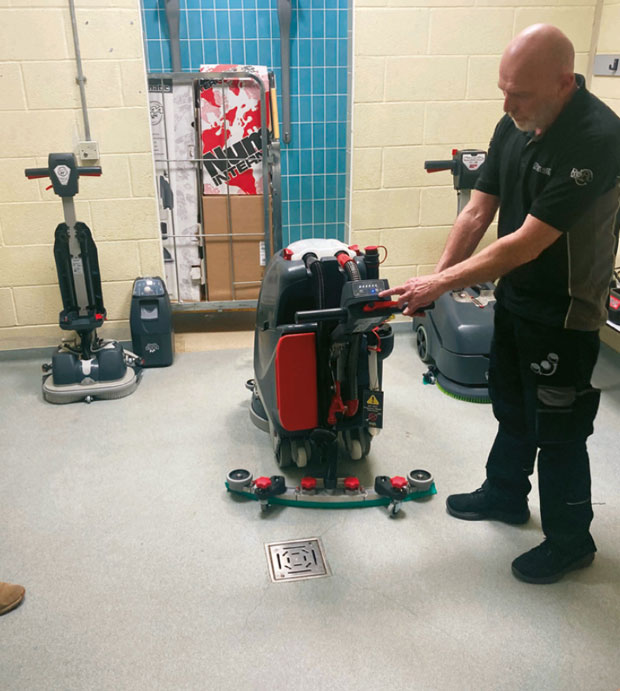TRAINING FACTORS
One of the key purposes of the research is to provide clearer guidance to the sector regarding skills and training for cleaning operatives. For this reason, the manufacturers are putting together the relevant training packages for their range and the operatives will be asked questions regarding the effectiveness of this training.
Says Hanson: “In addition to this, at the end of this project, it is our intention to then provide BICSc training for the operatives. We want to add six weeks at the end – where BICSc will train the staff and they will be audited and inspected every week to see what impact that has to the standard.
“We are there at the end of the project so that we are not impacting on anyone’s trial with the training that BICSc will provide. We will train the staff for each area and on the skills that are required. What will be key at the end of this is to then be able to say BICSc has now trained the staff, we are inspecting weekly, giving feedback to the staff, this is what that process does and what the results are.”
Hanson is confident that the initiative will help to demonstrate how important correct training is to the sector.
She says: “While you can train operatives on how to use the equipment provided, my argument will always be that unless you train operatives to physically do the skills, you are not training them properly. This [study] will be looking at what difference skills training makes. We will also show the usability of the kit from the cleaning operatives’ viewpoint.”
“The quality of the training will be key and that the kit is fit for purpose for the areas selected. This should include an explanation to the cleaning operatives of the machines being offered.”
In practice this means that any initial training is provided by the manufacturer who is providing the machinery being utilised as part of the trials. In this way, if the machinery supplied does everything the manufacturers say it will do, the operatives should have more time to spend on key areas that need more thorough attention, which is the whole basis of the cleanliness audit.
Because the team wanted to give equal opportunity to every manufacturer the trial will run until May 2025, to allow the summer holidays and the Christmas break to ensure that everyone has a six-week period of term time. Reports will then be produced covering air quality, bacterial count, and cleanliness audits.
Concludes Hanson: “We are trying to drill down into the actual specifics, what does this equipment clean in the allocated times and to what level?
“Through this study, we should get some good data of where the kit provided fits and where you’ll reap the maximum benefits from it.”






